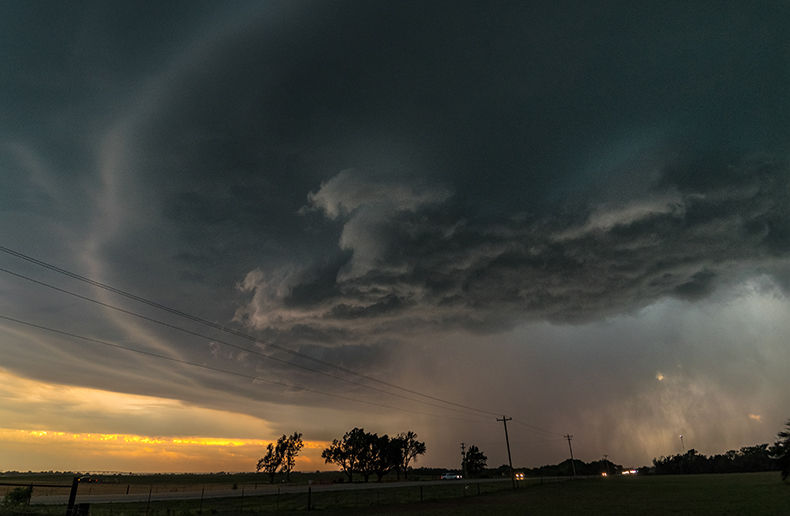Manulife Financial has decided to wind down the operations of Equinox Financial Services, a decision that came as no surprise to managing general agencies (MGAs). This move could spark a wave of consolidation in the coming months.
The news came suddenly in July, in the middle of vacation season. During a telephone conference call for the 34 MGAs affiliated with Equinox Financial Services, Manulife Financial announced it would wind down the company’s operations over the next 12 to 18 months. This decision came soon after the departure of Daniel Dessureault, general manager of Equinox, last June.
Bill McLean, current president of Equinox and vice-president, corporate accounts at Manulife, speaks of the need for cost effectiveness: “There were the long-term financial implications of this operation. We didn’t find a way to make it viable in the market. There was a significant investment required to maintain the status quo.”
Guy Duhaime, president of the Groupe Financier Multicourtage, says he was not surprised by this development. When former general manager Daniel Dessureault was let go last May, Mr. Duhaime had joked that after this first step, Manulife would soon be turning out the lights. Events have proved him right. “We got along very well with Daniel Dessureault,” he hastens to add. “Equinox’s growth was good. In fact, it was the best support network for representatives.”
Manulife’s decision also came as no surprise to Caron Czorny, executive vice-president and COO of Peak Insurance Services. “Manulife decided to focus on its three distribution systems: direct sales, national accounts, and MGAs. Equinox did not fit into that business model,” she notes.
Ms. Czorny feels sorry for the company’s employees who, in her opinion, were devoted to the MGAs. In fact, she herself once worked for Equinox, serving as senior vice-president, marketing and sales, from 2002 to 2004.
But Mr. McLean points out that Equinox’s 40 staff members are already employed by Manulife and should be moved to new positions within that company. He notes that Equinox has large offices on King Street in Toronto, as well as in Waterloo.
A 15-year history
Equinox Financial Services has been part of Canada’s financial landscape for fifteen years. Originally known as the Equinox Financial Group, it once belonged to the former Maritime Life Assurance Company. When it was acquired by Manulife two years ago, the company revamped its image, placing more emphasis on the service aspect, as we reported in an interview last May, just before his departure, with general manager Daniel Dessureault.
Equinox had signed an agreement with four insurers – Manulife, RBC Insurance, Standard Life Canada, and AIG Life Canda. This was one of the major benefits offered by Equinox to many MGAs.
Only two of the three insurers other than Manulife chose to comment – briefly – on the closing of Equinox. AIG Life did not return calls from The Insurance Journal.
“Over the short term, this will not affect our business. Over the medium term, it’s too soon to tell. We will see how things progress. We don’t expect any changes in the short term,” remarked Michèle Parent, vice-president, external communications and corporate affairs, at the head office of Standard Life.
RBC Insurance has also chosen the path of prudence, offering its full cooperation in business transactions throughout the process of winding down the company’s operations. The following corporate response was e-mailed to us by a company spokesperson: “RBC Insurance is aware of the situation regarding Equinox Financial Services. As always, we are committed to providing service and support to the Marketing Centres and their associates. We will continue to work with Equinox and the other insurance company partners through the wind-down process.”
MGAs take action
For their part, the MGAs are already calculating the loss in service that will result from the shutting down of Equinox.
Ms. Czorny goes one step further: “The commissions were very generous. In addition, there was networking among the MGAs – one of the benefits you can’t really put a price on,” she notes.
Mr. Duhaime adds that he will miss the telephone conference calls where they would discuss planning, the client management software, the joint services, the holding of periodic meetings, and Equinox’s support in large cases. “It seems that Manulife has no interest in providing those benefits,” he laments.
Mr. Duhaime recalls that when Manulife acquired the former Maritime Life, some 26 MGAs offered to buy Equinox, but Manulife turned them down. “We thought Manulife was planning to keep Equinox open. We didn’t mind that, but they clearly wanted to keep control,” says Mr. Duhaime.
Would a new offer to purchase be possible following the announcement of this closing? “Equinox is not for sale. Manulife has been very clear about that,” explains Ms. Czorny, who predicts a wave of consolidation in the MGA market in the next two or three years.
Could negotiations already have begun? Ms. Czorny confirms that there could very well be alliances and partnerships. Of what kind? “It’s too early to tell yet,” is all she will say. She nevertheless did report that a meeting of seven of Quebec’s ten MGAs was held on July 13 on “neutral ground.”
Chris Steir, president of Merit Financial, a MGA in Winnipeg, adds that during this meeting, which included Manulife, one of the agents suggested buying Equinox without going through Manulife – a proposal that stunned company representatives at the meeting. Mr. Steir nevertheless believes the MGAs can’t just sit around, twiddling their thumbs: “We are interested in resolving something,” he says.
Mr. Duhaime is concerned about this new wave of consolidation. “There may be some mergers, but it won’t necessarily be good for the public or the industry in general. Everything will be concentrated in the hands of seven or eight owners, many of whom are American,” he says.
According to Mr. Duhaime, MGAs will have to redouble their efforts. “I’ve been fighting for 20 years to ensure the survival of Quebec companies and make insurance available to everyone. That won’t change. It will be harder and harder for small offices like ours to enter into partnerships with insurers. I think they are trying to increase volumes, to count less on front-line distribution and more on sub-distributors.”
MGAs are moving cautiously because they don’t want to disrupt their business relationship with Manulife – one of the country’s largest insurers. As Mr. Steir remarks, “A lot of advisors need to do business with Manulife. You can’t put them aside. Our strategy is to preserve the contract for existing and future business.”






